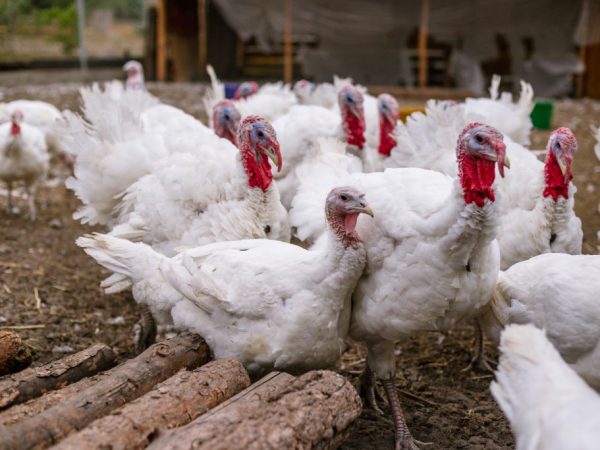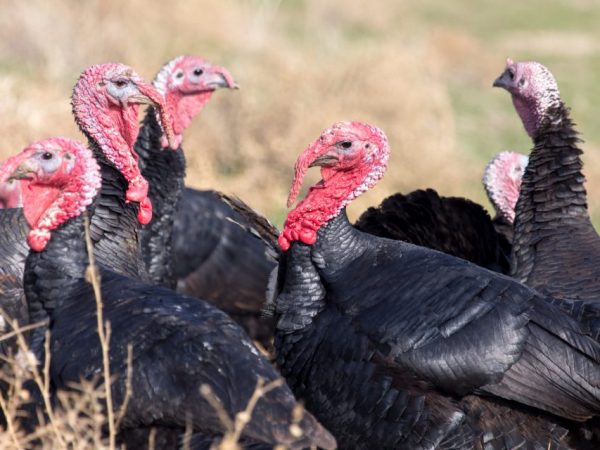The effectiveness of Furazolidone for turkey poults
The terrible dream of every poultry farmer is the death of an individual or a whole herd. Farmers have an irresistible desire to keep their animals healthy. And the beauty of feathers and the health of the animal itself implies not only proper, rational nutrition and feeding, but also a competent selection of medicinal substances. Unfortunately, farmers cannot listen to the body of a turkey, but they can constantly improve their knowledge of the treatment and prevention of turkey diseases and rationally approach the recommendations of veterinarians. Only an experienced doctor has the right to categorically and competently prescribe medicinal substances, such as Furazolidone for turkey poults, and ignorance of the basics of veterinary medicine does not exempt the farmer from responsibility for the health of his wards.

The effectiveness of Furazolidone for turkey poults
The versatile rescuer for turkey diseases
Turkey is a subspecies of the order of large chicken individuals, therefore it is subject to the same diseasesas congeners. There are also diseases such as pullorosis, from which turkeys die en masse, and other members of the bird family are easily tolerated. In order to prevent diseases, it is important:
- carefully comply with the requirements established by veterinarians, sanitary feeding rules and ensuring the vital activity of turkeys;
- to settle chicks and adult turkeys (potential carriers of any infection) in the allotted time;
- neglect of the permissible number of turkeys in a confined space entails irreversible consequences;
- adhere to the recommendations for temperature and humidity in the room according to the age and breed of turkeys;
- be sure to try to include in the diet food rich in protein and fiber, vitamins, trace elements and minerals;
- take timely measures to prevent diseases (vaccinations, etc.).
Fighting an ongoing epidemic is more difficult than preventing it. The evolution in the world of treatment is noticeable not only for people, but also for our smaller relatives. It is important for farmers and poultry houses to own antibiotics for turkeys with a preventive and curative mission. Furazolidone is used when found in "wards":
- hepatitis of all types;
- coccidiosis;
- enteritis;
- salmonella of all types;
- balantidiosis, colibacillosis, dysbiosis, dysentery (bacillary type);
- diarrhea of infectious origin;
- giardiasis, cystitis, paratyphoid fever;
- infected wounds and burns.
Furazolidone for turkeys is a medicine that belongs to the group of bacterial antibiotics and has an antimicrobial effect on bacteria of the gram-negative and gram-positive groups, Trichomonas and coccidia. The positive aspect of this remedy is that pathogens very slowly produce antibodies to the drug, and the drug itself is less toxic than other drugs in this group. The ability to destroy bacteria that are resistant to antibiotics is observed.
Dosage and prescription of the medication
The medicine is in the form of round tablets or powder, yellow in color with a weak bitter taste, odorless. The amount of active ingredient is (furazolidone) 0.05 g. All other excipients: potato starch, lactose, sucrose, calcium stearate, tween-80. Medicinal properties are lost on boiling. The powder is almost impossible to dissolve in water, and the situation is even worse with alcohol. It belongs to group B antibiotics and is stored in a dark container in a dry place.

The medicine should be mixed with food.
What will be the dosage? The most common instruction for the use of tablets is - the daily dose is mixed with food, and divided into 3 feedings and fed every 5 hours (for adults). It is recommended to give turkeys twice a day, lasting a week, you will have to dilute the tablet with water or feed. In the presence of residual symptoms (poor appetite, diarrhea), the course is repeated after 10 days. For prophylaxis, to turkeys born less than 10 days ago, give 2 mg of the drug every day once a day to each.
How to take it right
Depending on the disease, the scheme of application also changes. So during salmonellosis, turkeys begin to be given 3-4 mg per kilogram of live weight of an adult. The number of receptions is 3 for 5 days. For chicks, the dose is calculated taking into account the number of livestock, so once a day, 0.1-0.4 mg for a period of 10 days, the medicine is mixed into food. In case of acute illness of turkeys with typhus, the drug is diluted in 0.04-0.06% concentration to dry food at the rate of 7-11 mg per week. For the prevention of pullorosis in chicks and adults, Furazolidone is prescribed at 0.4-0.6 mg for about a week.
It is advisable to include probiotics, multivitamins and glucose in the regimen during antibiotic treatment. These "helpers" of the intestinal microflora help to increase immunity and prevent dysbiosis. As far as possible, they correct the harm from the use of an antibiotic, normalize the level of lacto- and bifidobacteria in their digestive tract and intestines, improve digestive processes, and also activate metabolic processes, stimulate the growth of hormones and enzymes, and this will have an extremely positive effect on the body's defense system.
Negative Factors of Using Antibacterial Treatment
Negative factors appear with prolonged use and in a large dosage of the drug. Therefore, in order to avoid neurosonephritis, polyneuritis, toxic liver dystrophy, diarrhea, dysbiosis, decreased appetite and glucose indicators, as well as an allergic reaction in an animal, strictly follow the recommendations for the treatment regimen (what and how much to give). In the spring, when the turkeys are weakened, as well as during pregnancy, Furazolidone is not prescribed.
During treatment with Furazolidone, the poultry farmer should remember the time of withdrawal of the drug from the bird's body. The processing of turkeys for meat is allowed no earlier than 4 days after the last use of the drug. Turkey meat, which farmers were forced to kill before the expiration of the specified period, are used as feed for fur animals or in the production of meat and bone meal.
Today turkey farms are becoming more and more popular. But at the same time, any farmer who is engaged in growing turkeys will say that it takes a lot of effort and energy to grow a large, fleshy and healthy individual. Due to the mutation of pathogenic bacteria, turkeys are susceptible to strains and variations of viruses and diseases that are dangerous, both for an individual individual and for the entire livestock. In order not to lose a valuable product and not waste energy, materials and finances in vain, every poultry house is simply obliged to have an assortment of different medications in the first-aid kit, in particular Furazolidone, to provide immediate assistance to the animal.


